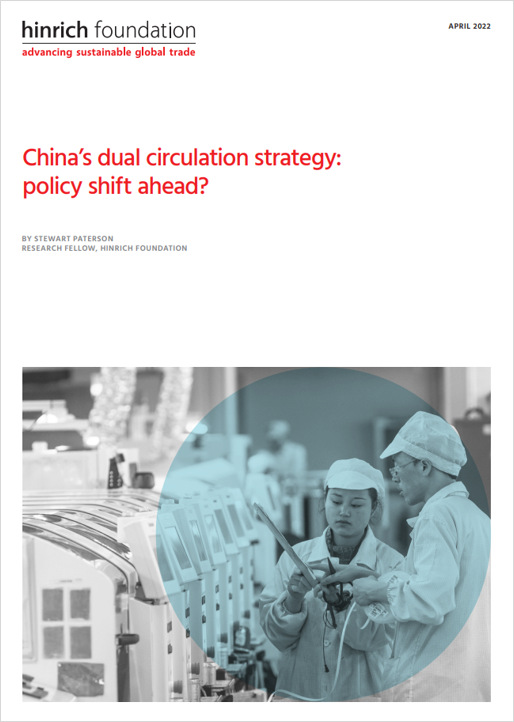Published 12 April 2022
Trade and investment in China will continue to become highly politicized until the damage to prosperity and living standards induces a change in direction. The power of Western commercial elites to influence policy has been diminished by events in Eastern Europe. The constituency that has espoused a “laissez faire” approach to relations with China now finds itself somewhat isolated.
“Dual Circulation Strategy” should be thought of as the domestic and international economic policies implemented to further President Xi Jinping's over-arching grand strategy towards achieving the “China dream.”
Almost by definition, economic policies designed to achieve non-economic ends are likely to be suboptimal when measured by metrics of economic welfare and efficiency. However, where the two goals of "national rejuvenation” as defined by Beijing and "economic growth" may conflict, the former now emerges as the priority.
In this final report of the Hinrich Foundation “Dual Circulation Strategy” (DCS) series, Research Fellow Stewart Paterson examines the different scenarios outlining how China’s new policy may evolve over time and the consequences of those developments. To identify how DCS may change and impact Beijing’s international relations going forward, this report draws on the analysis of the previous papers, recent economic data from China, and the reactions to Russia’s invasion of Ukraine.
Download the other papers in this Dual Circulation Strategy series by Research Fellow Stewart Paterson:
© The Hinrich Foundation. See our website Terms and conditions for our copyright and reprint policy. All statements of fact and the views, conclusions and recommendations expressed in this publication are the sole responsibility of the author(s).








